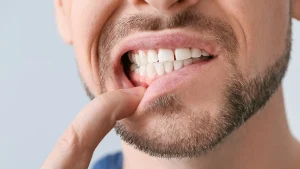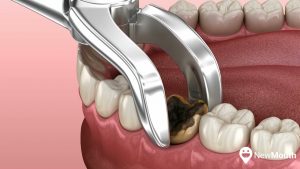Understanding Toothaches: Common Causes and Treatment Options
A throbbing pain in your mouth, a sharp twinge when you bite down – a toothache can disrupt your day and leave you reaching for relief.
But before you pop over-the-counter pain relievers like candy, it’s important to understand the cause of your toothache. Different types of toothaches point to different underlying issues, and some require help from a trusted dental clinic.
7 Common Causes of Toothaches
Toothaches happen from irritation or inflammation of the tooth’s pulp, the innermost layer containing nerves and blood vessels. This irritation can stem from various dental problems:
Tooth Decay (Cavities)
One of the primary causes of toothache or tooth pain is tooth decay from cavities. Bacteria in your mouth produce acids that dissolve tooth enamel over time when sugars and starches are left on the teeth after eating. This creates small holes, or cavities, that can penetrate into the inner layers of the tooth including the sensitive dentin and pulp.
If the decay gets deep enough, it triggers inflammation or infection of the dental pulp leading to pain. Early cavities may only cause temporary sensitivity to hot or cold foods. But larger ones will often hurt constantly.
Abscessed Tooth
A dental abscess forms when a tooth cavity or other problem allows bacteria to enter the soft tissues inside the tooth, like the pulp chamber or root canal. The immune system’s white blood cells rush in to fight the bacteria but cause swelling, pressure, and infection in the process. Abscessed teeth throb constantly, even at rest. They may also cause swelling or pus discharge near the affected tooth.
Cracked Tooth
A chipped or cracked tooth can expose the pulp to irritants like hot/cold or bacteria, causing sharp, sudden pain. Cracked tooth syndrome occurs when microscopic cracks form in the hard outer layers without the patient noticing. These hidden breaks act as passageways for decay that later produce acute tenderness to temperature changes, chewing, or pressure.
Gum Disease
Gingivitis (inflammation of the gums) and periodontitis (severe gum infection) can irritate the nerves and tissues surrounding the tooth, leading to a dull and achy feeling in the teeth and gums.
Damaged Fillings or Crowns
Over time, fillings and crowns can become loose, cracked, or worn. This can expose the tooth or allow bacteria to seep in, causing sensitivity and pain.
Teeth Grinding (Bruxism)
Grinding or clenching your teeth unconsciously can put excessive pressure on the teeth and jaw, leading to tooth pain and jaw discomfort, especially upon waking up.
Sinus Issues
Sometimes, pain from sinus infections can radiate to the upper jaw and teeth, mimicking a toothache.
Symptoms of Toothaches
Toothaches can manifest differently depending on the cause. Here’s a breakdown of some common symptoms:
Pain: This can range from a sharp, stabbing pain to a dull ache, throbbing pain, or constant pressure.
Sensitivity: Teeth may become sensitive to hot, cold, sweet, or acidic foods and drinks.
Swelling: Facial swelling, particularly around the affected tooth, can occur with abscesses or gum disease.
Bleeding Gums: Bleeding or inflamed gums can indicate gum disease.
Bad Breath: Pus from an abscessed tooth can cause persistent bad breath.
Fever: A fever can accompany a dental abscess.
While some mild toothaches might resolve on their own, it’s crucial to seek professional help for persistent pain and severe throbbing.
Toothache Treatment Options
While a dentist visit is the ultimate solution, here are some temporary pain-relieving measures you can try at home:
Over-the-counter pain relievers
Painkillers like ibuprofen or acetaminophen can offer temporary relief.
Cold compress
Apply a cold compress to the outside of your cheek to reduce inflammation and throbbing pain.
Saltwater rinse
Mix a teaspoon of salt in warm water and gently swish to cleanse your mouth and soothe discomfort.
Important Note: These measures are for temporary relief only and should not replace seeking professional dental care.
Long-Term Toothache Solutions for Lasting Relief
The dentist will conduct a thorough examination, including X-rays, to identify the cause of your toothache and recommend the most suitable treatment. Here are some common treatment options:
- Fillings: For cavities, dentists remove decayed tooth material and replace it with a filling material.
- Crowns: For severely damaged or fractured teeth, a crown (a cap) is placed over the tooth to restore strength and function.
- Root Canal Therapy: For infected teeth, a root canal removes the infected pulp, cleans the canals, and seals the tooth to prevent further infection.
- Tooth Extraction: In severe cases with extensive damage or infection, tooth extraction might be necessary.
- Gum Disease Treatment: Depending on the severity, treatment may involve scaling and root planing (deep cleaning) or surgery to remove infected tissue.
- Nightguards: For teeth grinding, a custom-made nightguard can be worn to protect teeth from the pressure of clenching or grinding.
Preventive Measures: Keeping Toothaches Away
Brushing, flossing, and regular dental checkups are your best defense against toothaches. Here are some key practices to maintain a healthy smile:
Brushing: Brush your teeth twice a day for two minutes each time, using a fluoride toothpaste.
Flossing: Floss daily to remove plaque and food particles from between your teeth, where brushing can’t reach.
Diet: Limit sugary foods and drinks, as they contribute to plaque buildup and tooth decay.
Regular Dental Checkups: Schedule regular dental checkups (at least twice a year) for professional cleanings and examinations. This allows your dentist to detect and address any potential problems early on before they cause pain or more extensive damage.
Quit Smoking: Smoking weakens the immune system and increases the risk of gum disease and other oral health problems.
By following these simple yet effective preventive measures, you can significantly reduce your chances of experiencing a toothache and maintain a healthy, pain-free smile.
Additional Tips:
Use mouthwash: Consider using an antiseptic mouthwash as part of your oral hygiene routine to further reduce bacteria and freshen breath.
Replace your toothbrush: Replace your toothbrush every three months or sooner if the bristles become frayed.
Manage stress: Stress can contribute to teeth grinding. Practice relaxation techniques like yoga or meditation to manage stress and reduce the risk of bruxism-related toothaches.
Remember!
Early detection and treatment are key to preventing minor dental issues from escalating into painful problems like toothaches. By prioritizing good oral hygiene and regular dental care, you can invest in a lifetime of healthy smiles.
Finding Relief at a Trusted Dental Clinic, Calm Dentistry
Here at Calm Dentistry in Grayson, we understand your concerns and strive to provide a comfortable and compassionate environment for your dental care.
Dr. Givan is a highly experienced general dentist who shares a core value with our practice: prioritizing patient comfort. She believes in helping her patients achieve comprehensive dental health in a calm, caring environment.
This philosophy extends to treating toothaches. Whether you’re experiencing a sharp twinge or a dull ache, Dr. Givan will conduct a thorough examination to diagnose the cause and recommend the most suitable treatment option to get you back to smiling pain-free.
We also offer convenient appointment times and accept most insurance plans. Our friendly and knowledgeable staff will be happy to answer your questions and guide you through the scheduling process. We serve many cities in Georgia including Grayson, Lawrenceville, Atlanta, and more. We want to be your dentist of choice!
Prioritize your oral health and experience the Calm Dentistry difference. Contact us today and let us help you achieve a pain-free, healthy smile!






